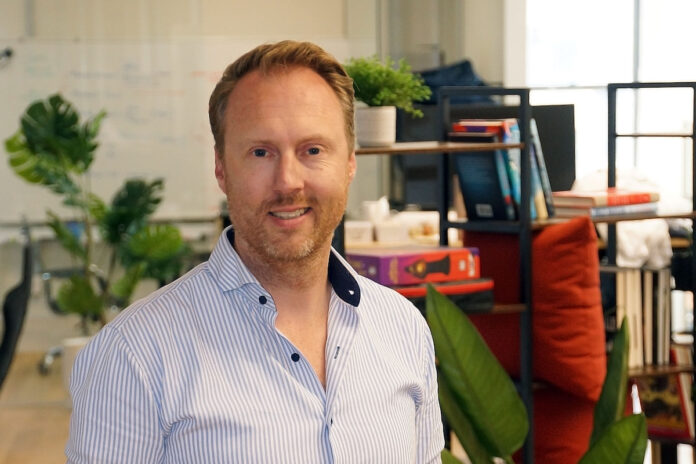Kry10 platform for mission-critical connected devices prioritising security and resilience
Please introduce yourself and your startup Kry10 to our readers!
I’m Boyd Multerer, founder and CEO of Kry10, the first modern platform for mission-critical connected devices. Despite my background in mechanical engineering, I found myself more drawn to the software part and ended up joining the Microsoft team and helping build Xbox Live. After almost 18 years at Microsoft, I decided to leave and travel around the world for a bit. Kry10 is the result of all these different experiences, stemming from the urge to build something new again.
Over the course of the past five years, I have been collaborating closely with a team of engineers to design and build an operating system and platform that can meet the rigorous needs of critical systems that require the highest level of assurance.
Simply put, the Kry10 platform is a purpose-built modern platform for mission-critical connected devices. Built on the world’s first formally verified OS (seL4), the platform is designed for resilience and manageability and aims to deliver military-grade cyber resilience to commercial customers.
How did you get the idea for Kry10?
After I left Microsoft, I took some time to travel through Europe with my family. I also used this time to meet with different tech companies and discuss the problems they were facing. I was shocked by how the technology that some of these companies were using was not only unsustainable but also not efficient, as, ultimately, it was not simplifying their lives.
That’s when I realised that, despite the apparent contrasts, IoT will not be that different from gaming consoles. I saw parallels in the need for security, remote management, and flexibility in both. After all, there are over 31 billion connected devices worldwide, many of which are deployed in mission-critical systems, so these factors are pivotal for IoT.
Early in my career, I learned that you don’t build for what the world needs today; you build for the future. However, in order to do that, I had to go back to the fundamental principles to figure out the suitable technology, the kernel requirements, the right code stack, and the other building blocks shaping modern device computing.
Why did you decide to start with Kry10?
The simple answer would be that I wanted to build something with impact again. Looking back at game consoles, I realised that rather than being PCs, they are managed like industrial devices, as in both cases hackers try to steal intellectual property, there is constant uptime with no perceivable interruptions required, and you can’t afford to update deployment to ruin the user experience. So, I wanted to take lessons from the console world and apply them to factories, aviation, and healthcare—to devices that do a job that is more important than the device itself.
These devices are not replacing people, but augmenting them and doing jobs humans cannot do. Sometimes this involves monitoring a critical safety system at an electric power plant. Sometimes it is engaging automatic brakes when the driver of a car doesn’t see a hazard. Sometimes it is running the ventilator that keeps a person alive. In each case, it becomes essential that these devices continue to perform their jobs without hesitating. This means that, in the face of intentional or unintentional failure, they resume the task with minimal downtime.
As devices become more autonomous, more complex, and do more decision-making, there needs to be a higher level of safety, reliability, resilience, and management. This is what Kry10 aims to deliver.
What is the vision behind Kry10?
Kry10’s core mission is to enable others to build and run the real-world devices the world relies on. Our vision is to bring a new era of digital transformation to mission-critical industries by providing a modern platform that addresses a new generation of needs. We know that eliminating the world’s software malfunctions is not a possibility, but we also know that by choosing the right bits of code, errors won’t spread. By using formally verified operating systems, Kry10 ensures that the systems are resilient by design and built to contain damage and be manageable.
We seek to enable our clients to achieve their full potential by helping them leverage technology as a catalyst for growth while also empowering them to stay ahead of the curve in an ever-evolving technological landscape.
How difficult was the start, and which challenges did you have to overcome?
I wanted to be closer to Sydney, the centre of the world for formal methods, and this involved moving my entire family to the other side of the world, which was both a challenge and an adventure for them.
Who is your target audience?
Generally speaking, we target a diverse range of industries that share a common characteristic: reliance on mission-critical devices. Whether we’re talking about satellites, electronic ECUs in a car, or the servers that operate within data centres, the unifying factor lies in the potential impact of downtime or failure.
The consequences of even a brief interruption in their operation can extend far beyond mere inconvenience; they can be dangerous. Take the ECUs within vehicles, for instance. Since these components are responsible for managing functions such as engine performance, safety systems, or connectivity, a failure in an ECU could lead to impaired vehicle operation, compromising the overall functionality of the vehicle and, consequently, the passengers’ safety.
However, we couldn’t have had these conversations 10 years ago, so, more specifically, the ideal customers are those who are currently facing a challenging problem without a clear solution. This often involves individuals developing devices that have evolved from being simple in nature to becoming more complex, such as incorporating multiple functionalities into a single computer or integrating AI into previously straightforward systems.
What is the USP of your startup?
Kry10 is designed specifically for mission-critical devices, prioritising security and resilience. The bottom line is that critical systems require high levels of assurance to manage critical risk.
So, how do we achieve this?
Well, the Kry10 Operating System (KOS) is based on the seL4 Microkernel, the starting point for systems that require a high level of security and assurance. Formal Methods (FM) use logic and maths to evaluate all possible scenarios and analyse the deep properties of the code. While FM is not new, using it to validate more than a few lines of code is, and by using FM via the seL4 Microkernel, Kry10 has built isolated and protected systems that manage, restart, and update applications on high-value devices.
Another differentiating feature of the platform is the fact that it is based on the ‘trust but isolate’ philosophy, so although the Kry10 platform is built to be secure, it is also designed to recover from any possible errors. For example, if an app crashes, it doesn’t spread to the whole system, and, ideally, it resets and comes back so fast that the user and the system do not even know of the problem in the first place. The infrastructure Kry10 uses allows for a much more secure system, meaning that users have much more assurance
Can you describe your typical workday?
Over the past couple of years, I can honestly say that every day looks different. It can range from getting up early to talk to the team in Seattle to getting on a plane to go meet with some of our partners and customers across the globe. In between these trips, I spend time enjoying the beauty of New Zealand. I also try to keep up with my interest in music and composing, which can be a respite and balance the hectic life of a startup.
Where do you see yourself and your startup Kry10 in five years?
Overall, my main goal is for Kry10 to become a key foundation for critical systems – and given that it’s a platform, I’m even more excited to see what people are able to build on this new high-assurance platform.
What 3 tips would you give to founders?
Build for the future: There is no point in starting a project that’s going to take you years to build if it will only be competitive at the present moment; what you are building needs to be interesting when you finish it. The only way to be ahead of the competition is by building what is required for the future, not for the present.
Invest in people: Kry10 wouldn’t have been possible if I hadn’t surrounded myself with professionals who excel in formal methods and seL4 and, more specifically, with a team I can trust.
Establish the problem you are trying to solve: Before you get all excited and start building something, you need to discover the problem that you are aiming to solve. Each feature in the product has to be aimed at a problem that you are solving.
Thank you Boyd Multerer for the Interview
Statements of the author and the interviewee do not necessarily represent the editors and the publisher opinion again.













